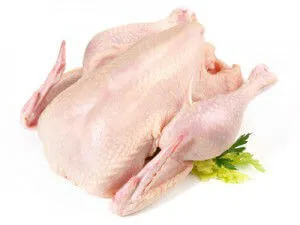Growing up, many of us have been taught to wash raw meat, including chicken, before cooking it, just to make sure it’s ‘cleaner’ before seasonings are applied.
However, it turns out that this practice may actually contribute to spreading the bacteria that causes food poisoning around our kitchens.
Dr. Jennifer Quinlan, an associate professor at Drexel University in Philadelphia, Pennsylvania, is part of a team that has developed the “Don’t Wash Your Chicken” campaign, in an attempt to discourage people from this common practice.
Dr. Quinlan explains, “you should assume that if you have chicken, you have either Salmonella or Campylobacter bacteria on it, if not both. If you wash it, you’re more likely to spray bacteria all over the kitchen and yourself.”
She elaborates, “it does not get rid of the bacteria, it does not kill the bacteria, however, there is a chance that it’s going to spray that bacteria… it’s called aerosolization.”
The Drexel University team joined forces with researchers from New Mexico State University to create an online video as well as photo novellas showing how food-borne bacteria spreads from raw poultry to its surroundings through the washing process
The animated video shows a woman washing a whole chicken under a ‘Germ-Vision’ screen, where the bacteria on the chicken, highlighted in green, is shown to spray microscopic droplets all over the surrounding sink, the cutting board and utensils near the sink, and the woman herself. Yuck.
[youtuber error=’Not a YouTube, Vimeo or Google Video URL: [youtuber youtube=’http://www.youtube.com/watch?v=JZXDotD4p9c&feature=youtu.be’]’]
As far as washing chicken in warm or hot water, Dr. Quinlan and her colleagues advise that tap water likely cannot be made hot enough to actually kill the bacteria, and does much more harm than good in the attempt.
Instead of washing, the researchers recommend that the best way to prevent the spread of foodborne bacteria is to cook poultry to 165 degrees Fahrenheit, and to keep your hands and kitchen surfaces clean during the cooking process.

Besides supporting agriculture that treats the birds humanely and gives them space to roam around, a study performed at the University of Maryland School of Public Health has found that organically-raised chickens showed noteably lower levels of contamination by drug-resistant bacteria.
Just make sure not to wash that organic bird, either!
– The Alternative Daily
Sources:
http://www.care2.com/greenliving/do-not-wash-that-chicken-video.html
http://www.delish.com/food/recalls-reviews/organic-chicken-contains-less-antibiotic-resistant-bacteria-than-that-of-conventional-chicken
